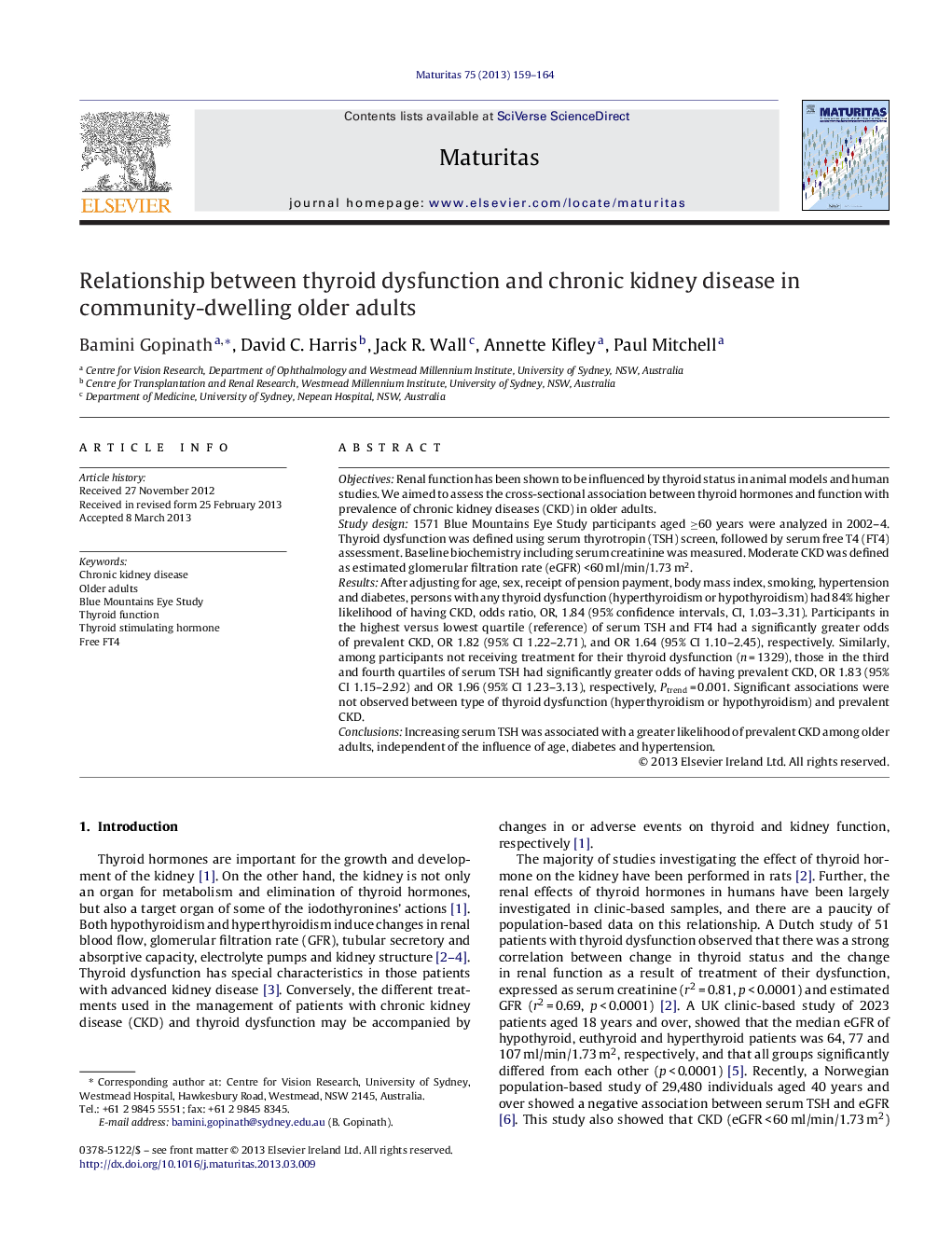| Article ID | Journal | Published Year | Pages | File Type |
|---|---|---|---|---|
| 1917688 | Maturitas | 2013 | 6 Pages |
ObjectivesRenal function has been shown to be influenced by thyroid status in animal models and human studies. We aimed to assess the cross-sectional association between thyroid hormones and function with prevalence of chronic kidney diseases (CKD) in older adults.Study design1571 Blue Mountains Eye Study participants aged ≥60 years were analyzed in 2002–4. Thyroid dysfunction was defined using serum thyrotropin (TSH) screen, followed by serum free T4 (FT4) assessment. Baseline biochemistry including serum creatinine was measured. Moderate CKD was defined as estimated glomerular filtration rate (eGFR) <60 ml/min/1.73 m2.ResultsAfter adjusting for age, sex, receipt of pension payment, body mass index, smoking, hypertension and diabetes, persons with any thyroid dysfunction (hyperthyroidism or hypothyroidism) had 84% higher likelihood of having CKD, odds ratio, OR, 1.84 (95% confidence intervals, CI, 1.03–3.31). Participants in the highest versus lowest quartile (reference) of serum TSH and FT4 had a significantly greater odds of prevalent CKD, OR 1.82 (95% CI 1.22–2.71), and OR 1.64 (95% CI 1.10–2.45), respectively. Similarly, among participants not receiving treatment for their thyroid dysfunction (n = 1329), those in the third and fourth quartiles of serum TSH had significantly greater odds of having prevalent CKD, OR 1.83 (95% CI 1.15–2.92) and OR 1.96 (95% CI 1.23–3.13), respectively, Ptrend = 0.001. Significant associations were not observed between type of thyroid dysfunction (hyperthyroidism or hypothyroidism) and prevalent CKD.ConclusionsIncreasing serum TSH was associated with a greater likelihood of prevalent CKD among older adults, independent of the influence of age, diabetes and hypertension.
